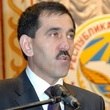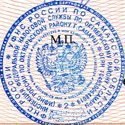Relations between Russia and Georgia are going through some changes after the new government came to power in Georgia. If before, Saakashvili and Putin/Medvedev had been exercising a policy of pure hostility toward each other, the new Georgian policy is to persuade a reluctant Russia of Georgia's good intentions. Two recent news items, contradicting each other, demonstrate the new ambiguity in Georgian-Russian relations. From one side, Georgian NGOs visited Kabardino-Balkaria last month, developing connections with pro-Kremlin Circassian NGOs in Russia that had recently established contacts of their own in Tbilisi. During that visit to Tbilisi, one of the Circassian delegates made a statement against the Georgian Parliament’s recognition of the Circassian genocide in 2011, but other Circassian delegates dismissed it as his personal opinion and criticized it. However, the recent visit of the Georgian delegation looks like another step toward preparation of grounds for abolishing the Georgian Parliament's resolution. In a second development in March, Ingush leader Yunus-bek Evkurov made a statement about the effective measures he has taken to avoid any danger of a possible Georgian invasion into Russia via Ingushetia's borders.
I asked Solomon Lebanidze (Tbilisi State University) to comment on these contradictions: "I thought that Evkurov was rather late to announce that Georgian-Ingush borders are safely locked down. Even before the Georgian Dream political coalition came to power, relations between Georgia and the North Caucasus were developing dynamically. Though those were not official relations, Ingush society and Georgian NGOs have been communicating and broadening their contacts for some time already. What are those statements about sealed Georgian-Ingush borders for, if Georgia never militarily threatened Ingushetia? Our people do not need such sealed borders.
As for the experts from Georgian NGOs that visited the North Caucasus, they represent different organizations that have different approaches towards the development of Georgian-Russian relations. Among them, only the "Institute of Eurasia" is a pro-Russian NGO that promotes abolishing the Georgian Parliament's resolution recognizing the Circassian genocide. Other experts in the delegation have different opinions. I met with one of the experts after his visit to Russia and found that we were in complete agreement in understanding the problems of the North Caucasus and of the Circassian question. We have not abandoned these positions with the change in government."
Sufian Zhemukhov is a Visiting Fellow at the Institute for European, Russian and Eurasian Studies (IERES), George Washington University, blogging for PONARS Eurasia on the Caucasus.










